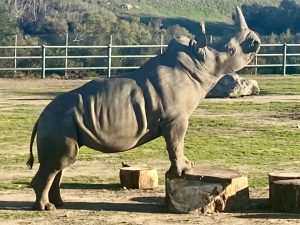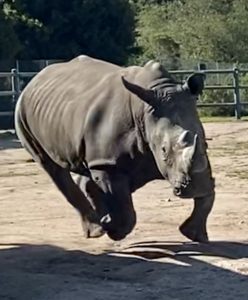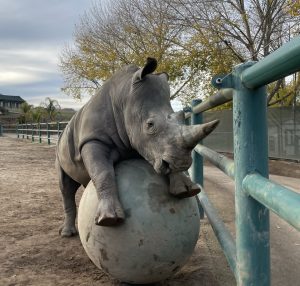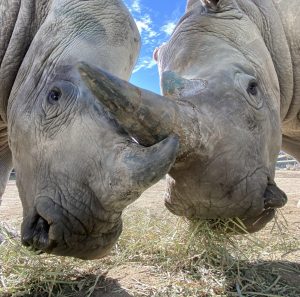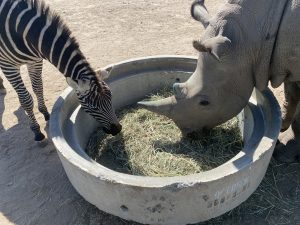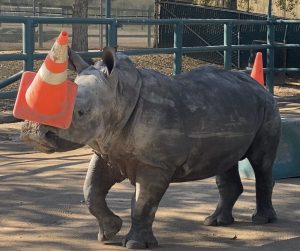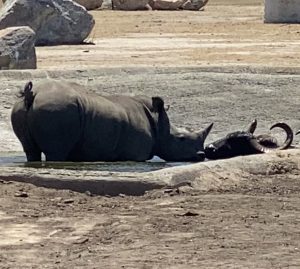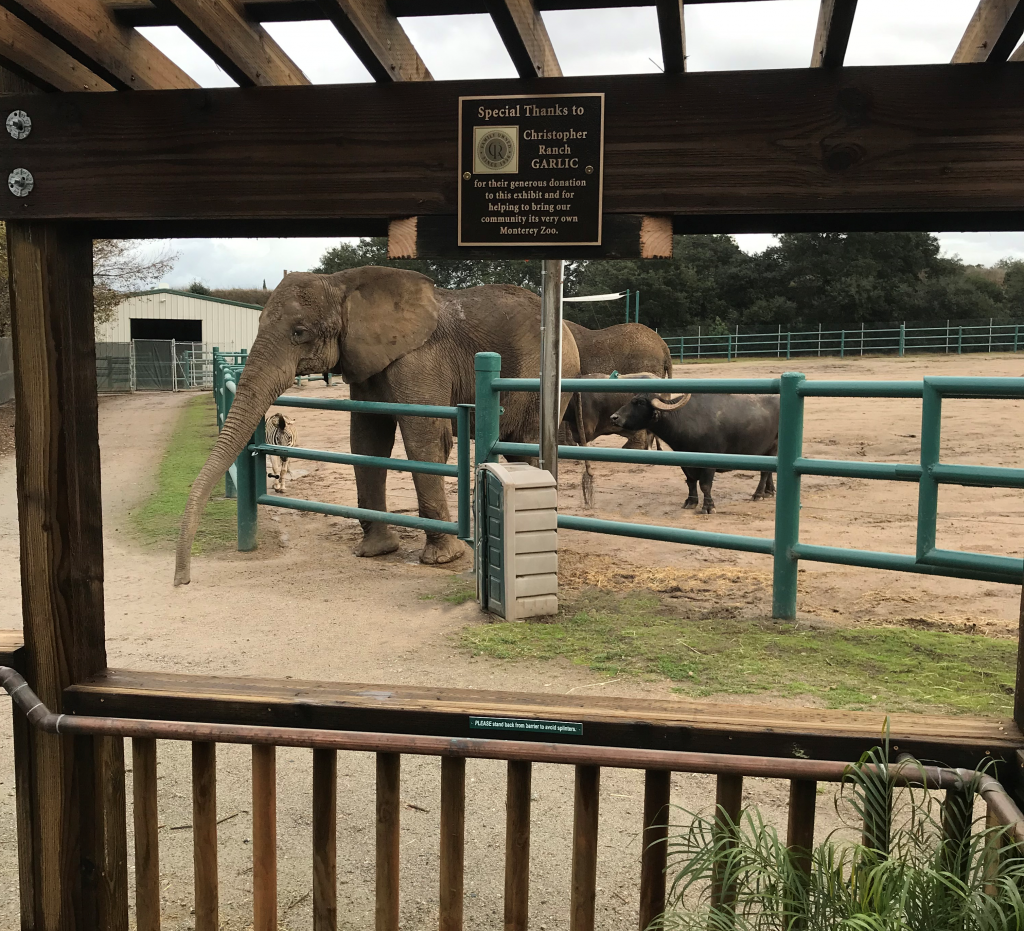 Elephants
Elephants
The elephants of Monterey Zoo have all been animals that came to us from the circus, carnival and entertainment industries. They were sent here to retire from such industries and live out their lives in a less stressful environment while still enjoying the interaction they received from the humans that cared for them. Our goal has been and will always be to share our animals with our guests in a fashion that is rewarding to animal(s) as well as supportive of our program . A win/win for all concerned. Having received our elephants at older ages and with inherent medical conditions, time and age eventually took some of them from us, reducing our herd to one final animal. In an effort to do our very best for our animals and in keeping with modern zoological standards, Monterey Zoo decided to relocate our one remaining African elephant, Butch, to another accredited zoological facility nearby where he would once again have the company of his own kind. Although we have no plans to bring elephants back to Monterey Zoo, our hearts and facility remain open to them should a zoological need arise. We sincerely hope all our donors, visitors, sponsors and true animals lovers will agree with and support this decision as Monterey Zoo proudly continues to evolve into a world class zoological experience.
Rhinos
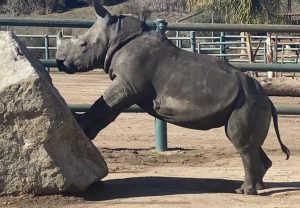 “Buddy”, “Billy-Ray” and “Bash”
“Buddy”, “Billy-Ray” and “Bash”
Southern White Rhinoceros (Ceratotherium simum simum)
The Southern White Rhino is one of two subspecies of white rhino (Southern white and Northern white) and is the most common and widespread subspecies of rhinoceros. Unfortunately, the Northern white rhino is destined for extinction with only two elderly females remaining in the wild. Scroll down to learn how you can help assure that doesn’t happen to one of the five remaining species or rhino!
Today, Monterey Zoo has transformed our elephant habitat into a world-class multi-species Africa Savanah Exhibit that features our very new and exciting Southern White Rhinos. Southern White Rhinos are one of the largest heaviest land mammals in the world. Females can grow to approx. 3750 lbs. while males can grow to approx. 5000+ lbs. They have two horns, the front averaging approx. 3+ft. in length as adults with the possibility of growing up to 5+ft on the larger animals. They are easily identified by their very wide front lips, evolved to accommodate their grazing technique to feed.
Diet
Southern White Rhinos are strictly herbivores that feed on short grasses however in captivity, we feed them select hays and formulated pellets (rhino pellets) to achieve the healthy and balanced diet they require.
Facts
Height: 5+-6+ feet to the shoulder (average)
Lifespan:40 to 50 years
Conservation Status
Sadly humans pose by far the greatest threat to rhinos. They have suffered from intensive hunting and poaching for their horns that some cultures believe to have a medicinal value. Modern medicine disputes this theory as the horn is made of nothing other than karatin, the same protein which forms the basis of our hair and nails. Although the Southern White Rhino is listed as near threatened with the ICUN, it’s sub-species, the Northern White Rhino is now facing eminent extinction as here are only two elderly females remaining on the planet and the only remaining elderly male died in March of 2018.
Monterey Zoo very PROUDLY partners with the International Rhino Foundation (IRF) to raise much needed funds for plight of rhinos worldwide. IRF is well known and respected by many if not all zoological institutions for the tremendous work they do for the five remaining species of rhinos, both Asian and African. We invite all Monterey Zoo donors to help us with this effort by making a donation directly to IRF by clicking on this link. If wasn’t that long ago we lost the Northern White Rhino forever, one of the eight species we started with. PLEASE, help us make sure we don’t loose another…
Did you know?
The white rhino received its name accidentally, as it was supposed to be called a “wide” mouthed rhino due to its very wide mouth. Mispronunciations over the years led to its being called a “white” rhino. Upon the discovery of the other African species of rhino, it was deemed a “Black Rhino” to simply set it apart from the white. It’s mouth is much different with a very narrow lip. The names of either have nothing to do with their actual color which is variations of brown and grey, depending on the layer of mud they adorn themselves with.


